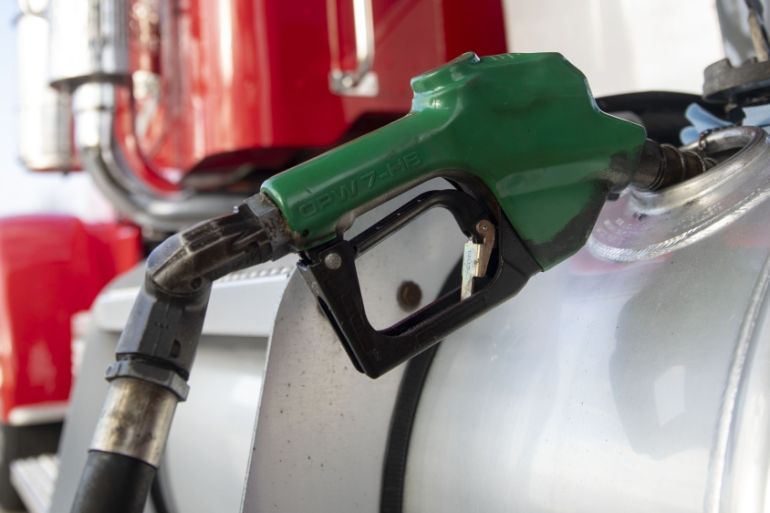Oil prices soar, stocks tank as Russia-Ukraine war rages
Brent leaps to almost $140 a barrel, the highest level since 2008.

The price of crude oil has jumped more than $10 a barrel and shares were sharply lower as the conflict in Ukraine deepened amid mounting calls for harsher sanctions against Russia.
Brent crude oil surged more than $10 early on Monday. Benchmark US crude was up nearly $9, at more than $124 a barrel.
The surge followed a warning from Russian President Vladimir Putin that Ukrainian statehood was imperilled as Russian forces battered strategic locations. A temporary ceasefire in two Ukrainian cities failed over the weekend, with both sides blaming each other.
Oil prices came under additional pressure after Libya’s national oil company said an armed group had shut down two crucial oilfields. The move caused the country’s daily oil output to drop by 330,000 barrels.
US House of Representatives Speaker Nancy Pelosi, meanwhile, said the House was exploring legislation to further isolate Russia from the global economy, including banning the import of its oil and energy products into the United States.
By late morning in Tokyo, US crude had jumped $9.08 to $124.74 a barrel in electronic trading on the New York Mercantile Exchange. The all-time high was marked in July 2008, when the price per barrel of US crude climbed to $145.29.
That pushed the average price for petrol in the US above $4 a gallon, a milestone reached earlier in 2008. The price of regular petrol rose almost 41 cents, breaking $4 per gallon (3.8 litres) on average across the US on Sunday for the first time since 2008, according to the AAA motor club.
The all-time high for average petrol prices was set on July 17, 2008, at $4.10 per gallon. Brent crude, the international pricing standard, hit $139.13 per barrel before falling back on Monday. It was trading up $10.56 at $128.67 a barrel.
On Wall Street, US futures fell, with the contract for the benchmark S&P 500 down 1.6 percent and that for the Dow industrials falling 1.3 percent. Stock futures in Europe also declined.
Higher fuel costs are devastating for Japan, which imports almost all its energy. Japan’s benchmark Nikkei 225 dipped 3.5 percent in morning trading to 25,091.93.
Hong Kong’s Hang Seng dropped 4 percent to 21,021.38, while South Korea’s Kospi dived 2.5 percent to 2,648.48. Australia’s S&P/ASX 200 shed 1.2 percent to 7,023.10. while the Shanghai Composite lost nearly 0.8 percent to 3,421.81.
“The Ukraine-Russia conflict will continue to dominate market sentiments and no signs of conflict resolution thus far may likely put a cap on risk sentiments into the new week,” said Yeap Jun Rong, market strategist at IG in Singapore.
“It should be clear by now that economic sanctions will not deter any aggression from the Russians, but will serve more as a punitive measure at the expense of implication on global economic growth. Elevated oil prices may pose a threat to firms’ margins and consumer spending outlook.”
Some analysts say sanctioning Russian oil will not necessarily harm Moscow.
“If Russia gets to export a third less of their oil and if they have to take a discount on it but if oil prices are much higher they might actually net positive on oil side and similar on other commodities,” said Josh Young, chief investment officer at oil and gas equity investment firm Bison Interests.
Markets worldwide have swung wildly recently on worries about how high prices for oil, wheat and other commodities produced in the region will go because of Russia’s invasion, inflaming the world’s already high inflation.
Companies have been exiting Russia, including Mastercard and Visa, as well as Netflix. The conflict in Ukraine also threatens the food supply in some regions, including Europe, Africa and Asia, which rely on the vast, fertile farmlands of the Black Sea region, known as the “breadbasket of the world”.